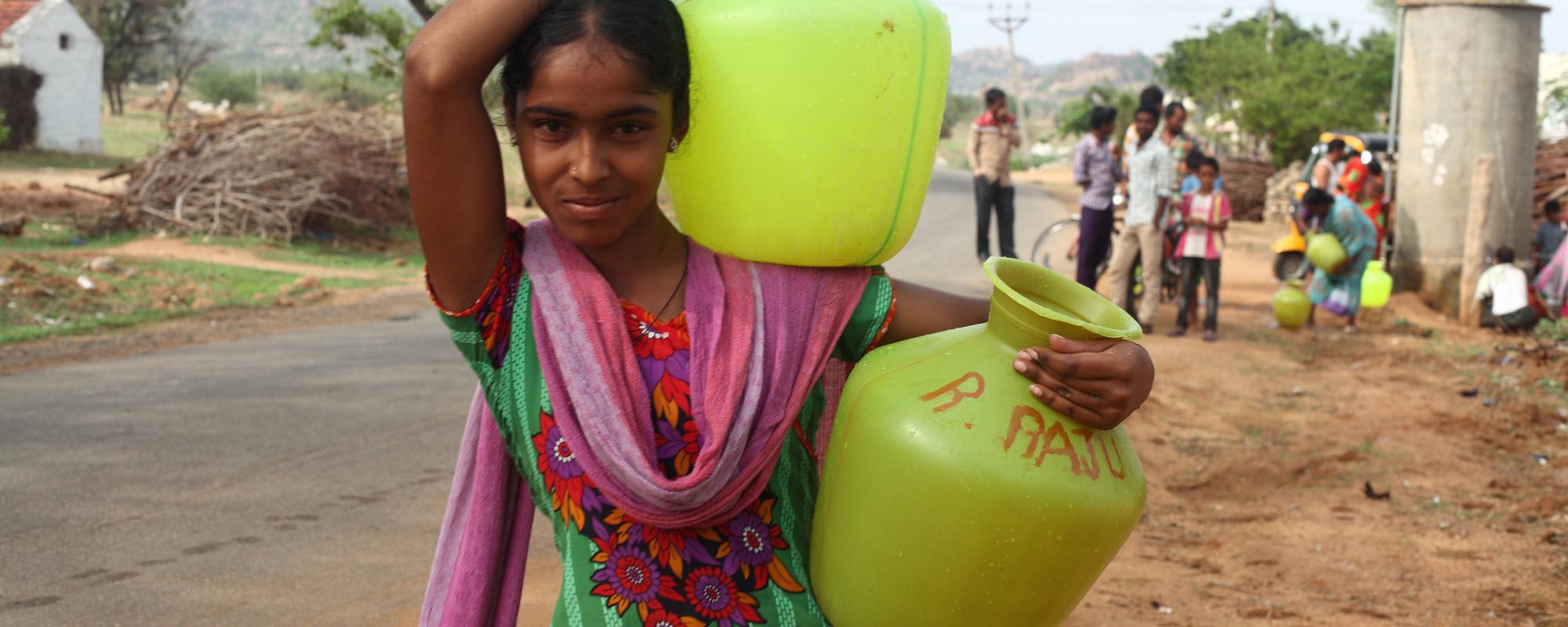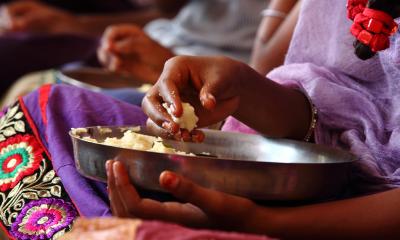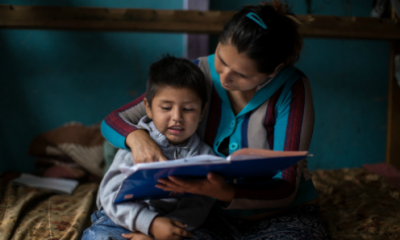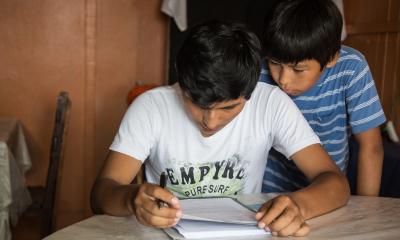
Young Lives is a unique longitudinal study of poverty and inequality documenting the lives of 12,000 children in Ethiopia, India (Andhra Pradesh and Telangana), Peru and Vietnam since 2001. Through two decades of mixed methods research, Young Lives has generated unrivaled data and a rich body of knowledge on the causes and consequences of poverty and inequality in low - and middle income- countries.
Young Lives' study design which follows the same children, in two age cohorts, born 7 years apart, in study countries that cover the four major developing regions of the world, provides unparalleled opportunity for comparative analysis. For example, Young Lives can show how early life circumstances impact on later life outcomes, how different aspects of life and community interconnect and change over time and how the experiences of poverty and inequality are similar or different across the four countries.
As a research-to-policy study, Young Lives data are providing the evidence base for informed policy-making nationally and internationally. Our work investigating the impacts of COVID-19 on the young people in our study offered timely evidence to policy makers and programmers to support recovery from the crisis.
Our study aims are to;
- Build knowledge on how early childhood experiences impact later life outcomes, and the part played by intersecting inequalities such as wealth, gender, age, and ethnicity, and significant external shocks including the COVID-19 pandemic and climate change
- Inform national and international policies and programmes that improve the lives of disadvantaged children and young people, and that are central to achieving the Sustainable Development Goals (SDGs)
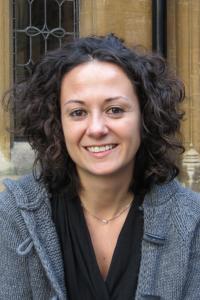
This video describes the unique nature of the Young Lives study, and how it aims to change lives across the world.
Young Lives is a unique longitudinal study of poverty and inequality documenting the lives of 12,000 children in Ethiopia, India (Andhra Pradesh and Telangana), Peru and Vietnam since 2001. Through two decades of mixed methods research, Young Lives has generated unrivaled data and a rich body of knowledge on the causes and consequences of poverty and inequality in low - and middle income- countries.
Young Lives' study design which follows the same children, in two age cohorts, born 7 years apart, in study countries that cover the four major developing regions of the world, provides unparalleled opportunity for comparative analysis. For example, Young Lives can show how early life circumstances impact on later life outcomes, how different aspects of life and community interconnect and change over time and how the experiences of poverty and inequality are similar or different across the four countries.
As a research-to-policy study, Young Lives data are providing the evidence base for informed policy-making nationally and internationally. Our work investigating the impacts of COVID-19 on the young people in our study offered timely evidence to policy makers and programmers to support recovery from the crisis.
Our study aims are to;
- Build knowledge on how early childhood experiences impact later life outcomes, and the part played by intersecting inequalities such as wealth, gender, age, and ethnicity, and significant external shocks including the COVID-19 pandemic and climate change
- Inform national and international policies and programmes that improve the lives of disadvantaged children and young people, and that are central to achieving the Sustainable Development Goals (SDGs)

This video describes the unique nature of the Young Lives study, and how it aims to change lives across the world.


